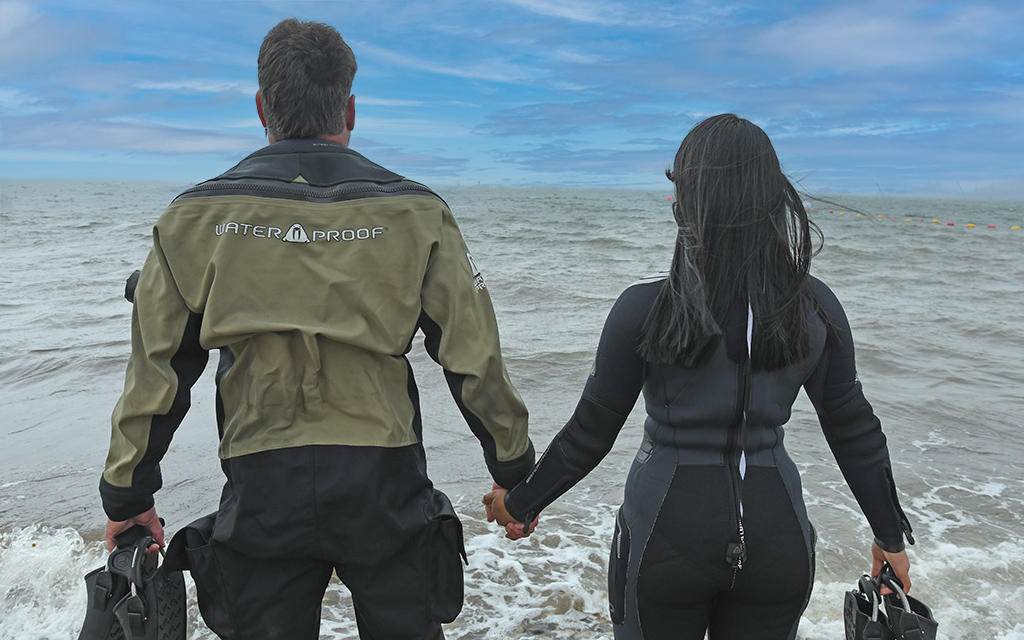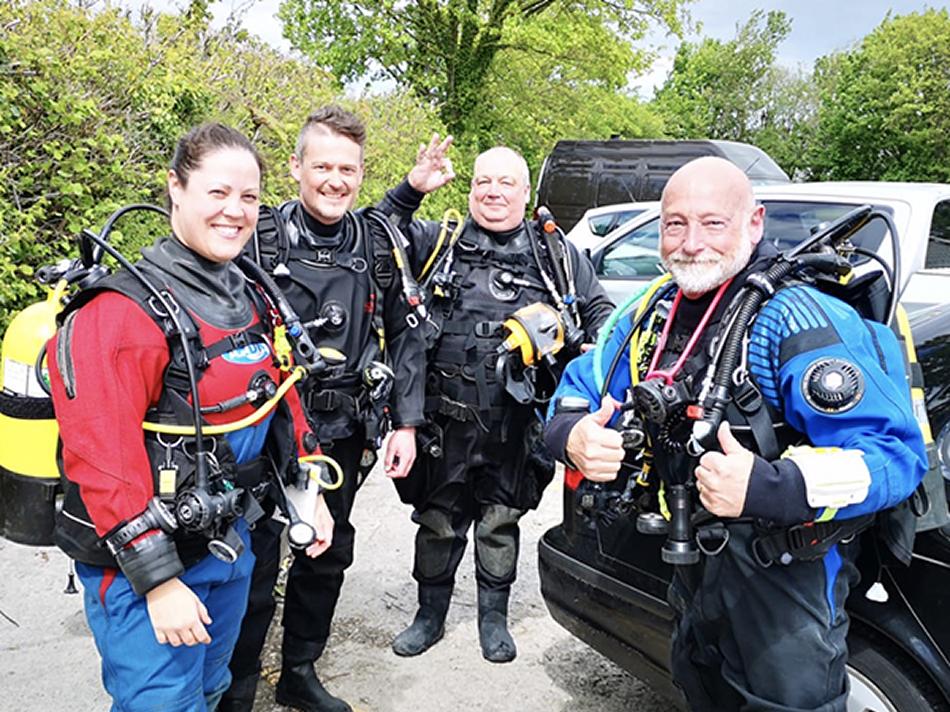
The theme of this year's Mental Health Awareness Week is ‘community’. Eugene Farrell former BSAC chair and mental health expert, discusses why community is important, and what BSAC clubs can do to develop thriving communities.
We as humans are social beings - community, belonging and togetherness are essential aspects of our lives. We have developed our innate human need to belong and form meaningful bonds with others. This drive stems from evolutionary roots, developed over thousands of years where group cohesion became essential for survival. We are hard wired to seek social support, share resources, and find identity within a collective.
Having strong human connection provides a sense of psychological safety, reduces stress, and boosts overall well-being. Being in a community like our clubs provides shared experiences, values, and goals, and these can give us a framework for understanding ourselves and the world around us. Social Identity Theory highlights how our group connection shape our personal self-concept and influence intergroup relations. Furthermore, concepts like social capital and collective efficacy demonstrate how strong community ties can empower individuals and facilitate positive social change.
Ultimately, the psychology of community underscores the profound impact of our relationships on our mental and emotional health, highlighting the vital role of connection in a thriving society.
[human beings] are hard wired to seek social support, share resources, and find identity within a collective
In BSAC we have a tradition of strong clubs which provide community. Here strong social bonds act as vital anchors for our mental health. When we feel connected to others – whether our dive buddies, club members, or wider social circles – we experience a greater sense of belonging and purpose. Sharing experiences, both above and below the water fosters empathy and understanding, reminding us that we're not alone in facing life's challenges. Through our club buddies we have crucial emotional support during tough times, a safe space to share worries and receive encouragement, and a place to be seen and heard. All of these can significantly reduce feelings of isolation and anxiety, help to strengthen our resilience, boost our self-esteem, and ultimately contributes to a healthier and happier mind. A bonus is that positive social interactions release feel-good hormones like oxytocin, that can counter stress and promote feelings of happiness and positive well-being. So, reach out, connect, and nurture those vital human bonds – they are as essential to our well-being as the air we breathe.
What can we do more of in our clubs to deepen our connection and community?
Enhance social interaction and belonging
- Regular social events (beyond diving): Organise more frequent social gatherings that aren't solely focused on diving – pub nights have always been popular in diving clubs, BBQs, quiz nights, movie evenings, or even shared hobbies.
- 'Buddy up' initiatives: Implement a formal or informal buddy system within the club, pairing newer members with more experienced ones for support, mentorship, and social integration.
- Welcome and integration programmes: Create a structured welcome process for new members, including introductions to key members, and dedicated 'newbie' social events to help them feel welcome and immediately included.
- Skill-sharing workshops (non-diving): Encourage members to share other skills, sports or interests they have (e.g., photography, walking, cycling, SUP).
- Family and friends events: Organise events that include family and friends of members, broadening the social circle and making the club more inclusive.
Strengthening shared purpose and identity
- Collaborative projects: Engage your members in joint projects like local marine conservation initiatives, beach clean-ups, or historical wreck research. By working together towards a common goal we strengthen those bonds.
- Club trips with a social focus: When organising dive trips, build in dedicated social time beyond the diving itself, like visiting historical sites, shared meals, non-diving activities and evening fun.
- Mentorship programmes: Pair experienced divers with newer ones, not just for diving skills but also for sharing the club's history, values, and social norms.
- Celebrating achievements together: Publicly acknowledge members' diving milestones, training achievements, and contributions to the club, fostering a sense of collective pride and support.
- Creating club traditions: Establish unique club traditions or annual events that members look forward to, strengthening the club's identity and creating shared memories.
Improving communication and participation
- Active online forums/groups: Foster engaging online platforms where members can share experiences, ask questions, organise pleasure dives, and connect outside of formal meetings. Encourage positive and inclusive online chat that goes beyond diving.
- Regular and engaging communication: Maintain consistent communication through newsletters, social media, and other channels, highlighting member stories, upcoming events, and opportunities for involvement.
- Member-led initiatives: Encourage club members to propose and lead activities or events they are passionate about, fostering a sense of ownership and increasing participation.
- Feedback mechanisms: Regularly seek feedback from members on how to improve club activities and create a stronger sense of connection, showing that their opinions are welcome and valued.
- 'Open door' policy for ideas: Maintain a culture where all club members feel empowered to share ideas and suggestions for social activities or club development.
By implementing a combination of these strategies, BSAC clubs can cultivate a more vibrant, supportive, and connected community, which will undoubtedly have a positive impact on the mental well-being of members.

 Author: Eugene Farrell | Posted 17 May 2025
Author: Eugene Farrell | Posted 17 May 2025



